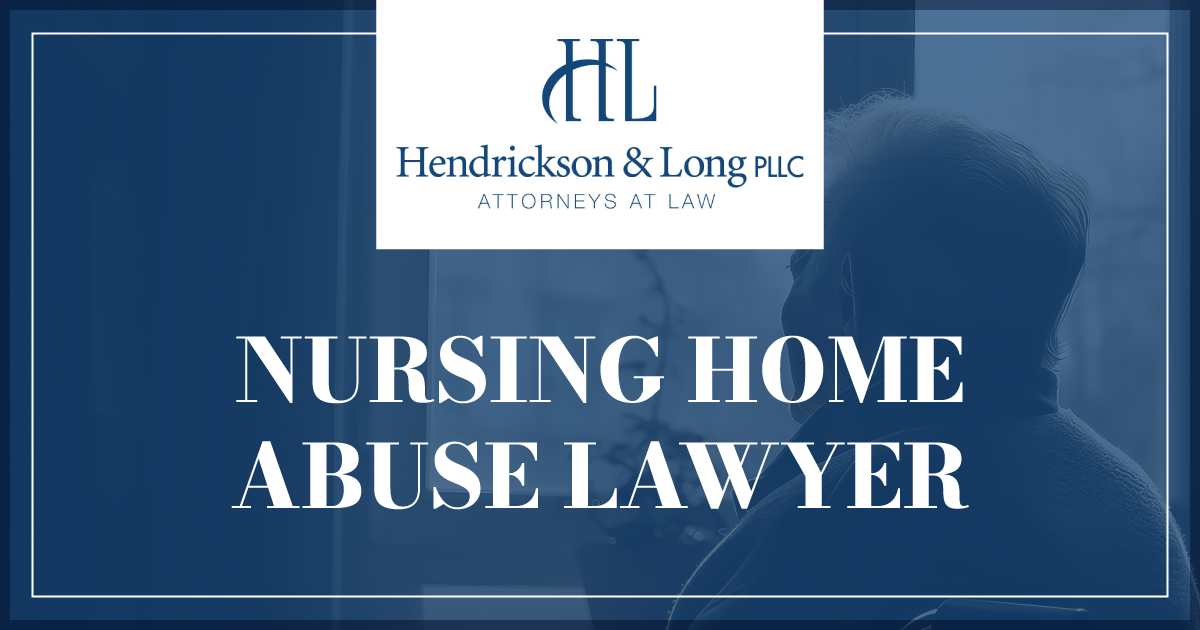Morgantown Nursing Home Abuse Attorney
While all of us want to think we can care for ourselves our entire lives, there comes a time when that is no longer possible, and the prospect of moving into a nursing home or other long-term care facility is the next logical step. If you are assisting your elderly loved one with selecting a new residence, you want the best one possible where you expect them to be safe and properly cared for. Unfortunately, that doesn’t always happen.
Nursing home and elder abuse cases happen far too often, usually causing irreparable damage to the victims. Data from the National Center on Elder Abuse (NCEA) shows that approximately one in ten nursing home residents aged 60+ in the United States suffer from some kind of abuse.
It’s appalling to think that the most vulnerable members of our community suffer abuse at the hands of those who are supposed to be keeping them safe. But if it does happen to someone you care about, know that an experienced and compassionate Morgantown nursing home abuse lawyer from Hendrickson & Long, PLLC, is here to help. We will fight for your elderly loved one’s rights and bring to justice those responsible for their mistreatment.
Defining Abuse and Neglect
Often, when discussing elder abuse in nursing homes, the term “neglect” is used simultaneously, but in actuality, it’s not the same thing.
Abuse in nursing homes is intentional physical, psychological, emotional, or financial harm, such as stealing personal items or assaulting a resident, whereas neglect is generally unintentional harm, such as forgetting to provide meals or medications or not assisting a dependent resident to the restroom or to and from their bed or wheelchair.
Although there is a difference between the two, both abuse and neglect of the elderly are considered illegal in the state of West Virginia and are punishable by law.
Nursing home abuse is generally broken down into the following categories:
- Physical: Assaulting a resident by hitting, slapping, restraining, or other similar actions
- Sexual: Unwanted sexual relations such as inappropriate touching or rape
- Psychological or Emotional: Verbal assault such as yelling, cursing, and threatening or isolating a resident from other residents or friends and family
- Financial: Stealing a resident’s credit or bank card or checkbook, or stealing other personal items to sell
Signs To Look for in Your Loved One
While we’d like to believe that our elderly loved ones are safe and happy in their nursing home or long-term care facility, the unfortunate reality is a lot of elderly adults aren’t. According to the World Health Organization (WHO), rates of abuse of older people are higher in institutions than in other places, with two out of three staff members self-reporting that they committed abuse within the past year.
Some red flags to look out for when you visit your loved one’s nursing home include, but are not limited to:
- Unsanitary or unsafe living conditions
- Too many residents per caregiver
- Dehydration
- Malnutrition
- Bed sores
- Bruises
- Signs of overmedication
- Sudden large amounts of money missing from a bank account or a large charge on a credit card
- Broken or missing personal items (glasses, hearing aids, other medical devices, wallets including identification or credit cards and checkbooks, or cellphones)
- Reports of neglect or physical, emotional, or verbal mistreatment
- Sudden unusual habits (frequent crying, not speaking, etc.)
- Broken skin
- Persistent body odor
- Welts
- Wounds in various stages of healing
- Unexplainable genital bruising or infection
- Bruised breasts
It’s important to remember that even if your loved one has one or more of these signs, it doesn’t mean they are being abused, but those signs are still red flags. If you have any suspicion of mistreatment or neglect, it’s in your loved one’s best interest to act as soon as possible, and Hendrickson & Long, PLLC, can help.
What To Do if You Suspect Elder Abuse
When suspecting or witnessing the abuse of a loved one in a nursing home facility, you may think that your best course of action is to report the mistreatment to the facility staff or management.
Our office strongly suggests against doing so because, unfortunately, in a lot of cases, the abuse is caused by those very same staff or managers. If you make a report to the people who are responsible for the harm your loved one has suffered, those responsible may destroy any evidence of their wrongdoing.
Your attorney will likely inform you that reaching out to law enforcement and your county or state adult protective services or ombudsman is the best way to make a report of elder abuse. If your loved one is not in immediate danger, having your lawyer gather all the evidence and make a report to the state is the safest and most strategic way to ensure you have a sufficient case to pursue.
If you believe your loved one’s life is in immediate danger, remove them from the facility as soon as you are able and call local law enforcement. Then, contact your lawyer, and they will assist you in gathering the necessary evidence for your case and making your report of abuse to the state.
In West Virginia, you can make elder or adult abuse reports to the Department of Health and Human Resources 24-hour Hotline at 1-800-352-6513. Additionally, certain persons are required by WV Code §9-6-9 to make a mandatory report to Adult Protective Services for any known or suspected abuse within 48 hours of suspecting these circumstances.
If you know of or suspect financial abuse or exploitation, you can call the Attorney General’s Senior Protection Hotline at 1-866-241-5062.
We want your elderly loved one to be safe and happy in their nursing home or long-term care facility just as much as you do. But in the event that mistreatment does occur in Morgantown or anywhere in the Mountain State, know that Hendrickson & Long, PLLC is here to help you.
Contact our office online or by phone today, and let us assist you and your loved one by bringing those responsible for their abuse to justice and preventing other vulnerable adults from further mistreatment.


